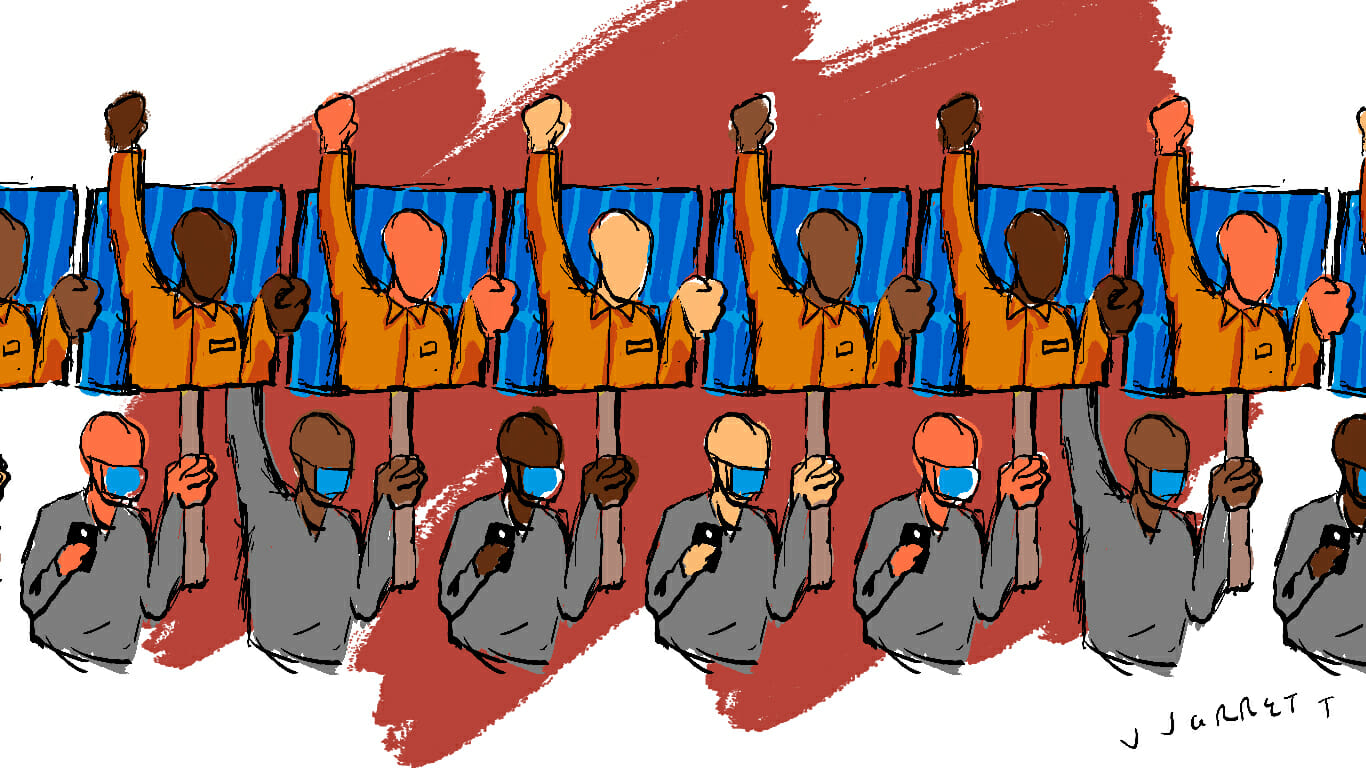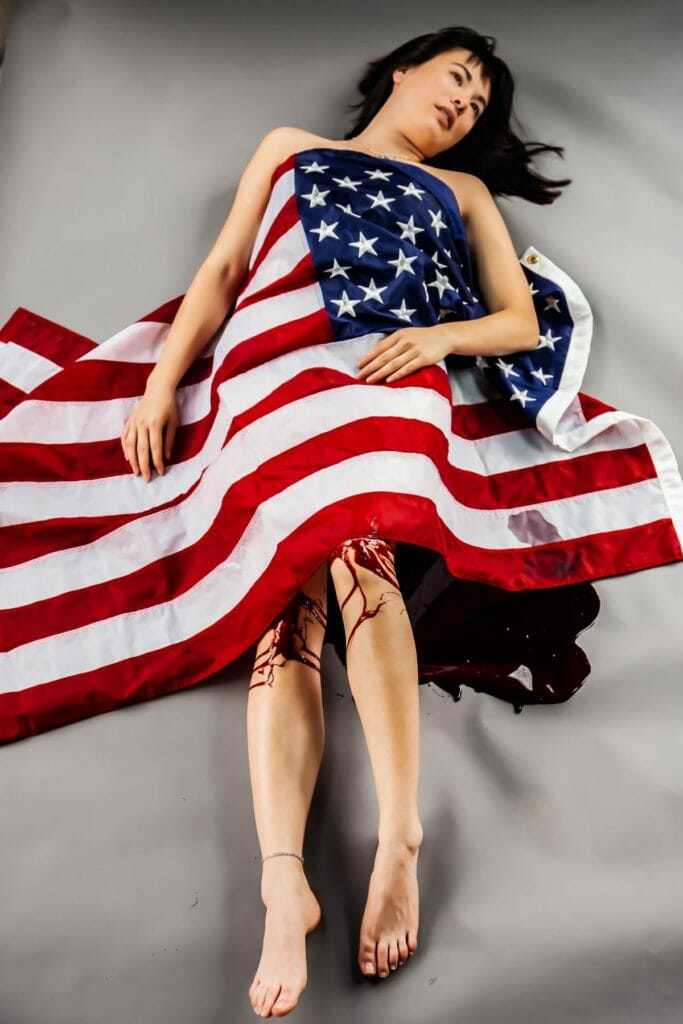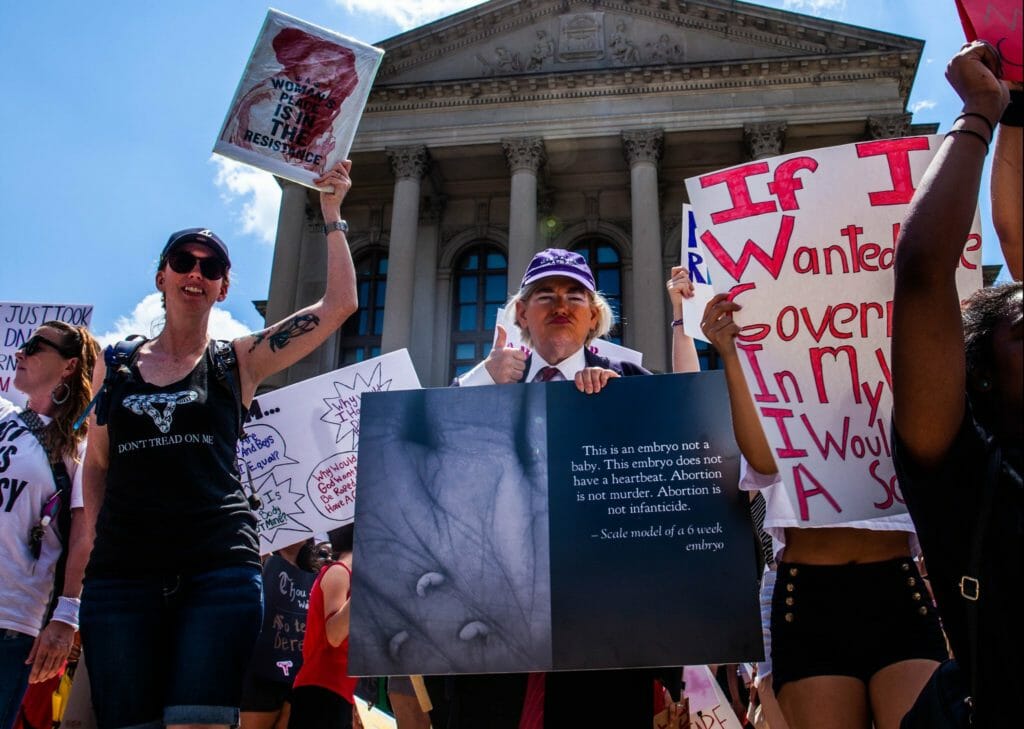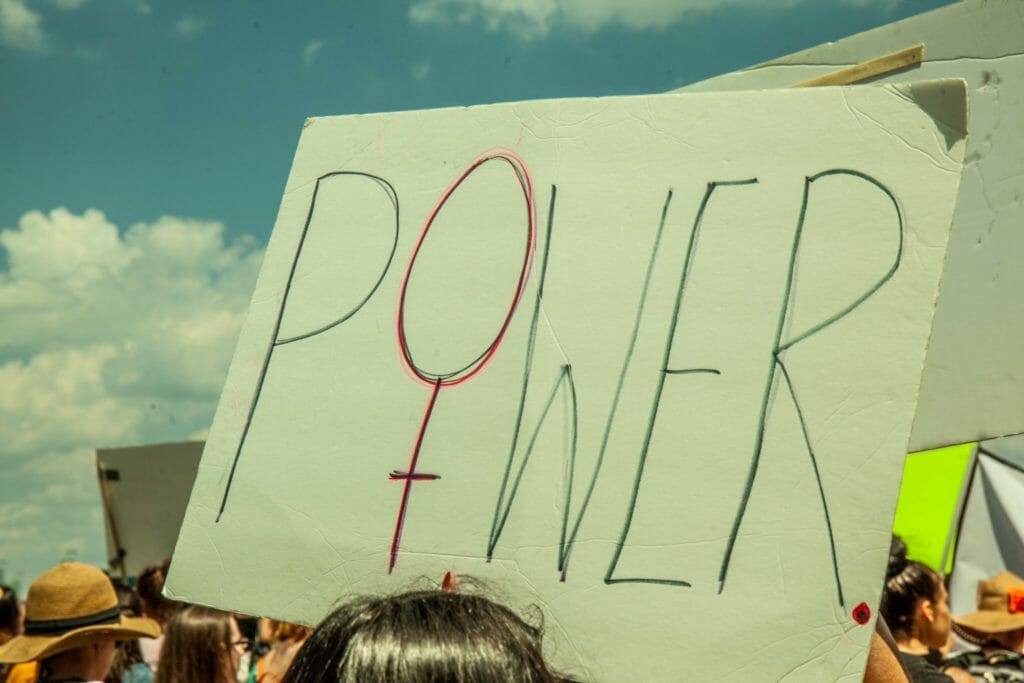A look into wealth-based detention, how Atlanta taxpayers pay for nonviolent jail detainments, and a closer look into activism dynamics

ATLANTA — It’s no secret that cash bonds unjustly punish the poor. Atlanta Mayor Keisha Lance Bottoms is well aware. In February 2018, just a month after Bottoms assumed office, she spearheaded an ordinance for bail reform that was voted in with a 13-0 majority despite reluctance from the City Council.
The ordinance was passed following the demands issued by the Southern Center for Human Rights (SCHR) and Civil Rights Corps in response to a 2017 incident in which 10 Atlanta men were denied asking for bail at the municipal court. The groups said these actions were unconstitutional, violated basic human rights, cost municipalities millions of dollars in excess costs, and furthered mass incarceration in the state.
According to the SCHR, in one case, because a homeless man could not afford a $200 bond, city taxpayers paid a total of $5,558.40 to incarcerate him. In 2016, at least 890 people were transferred from the city jail to county jail due to their inability to pay bail. These detainments cost taxpayers approximately $700,000.
SCHR and Civil Rights Corp won that battle for recognizance bail for petty crimes. The resulting ordinance allowed the Atlanta Detention Center to release without-bail individuals with pending nonviolent misdemeanor charges. This was met with some opposition from the city council, particularly councilmembers Joyce Sheperd, District 12, and Michael Julian Bond, Post 1.
“There are victims of these crimes, even if they (the offenses) aren’t violent,” said Bond. He also suggested the council “be careful in our zeal for civil liberties,” a sentiment he reiterated during his defense of the Atlanta Police Department in one of the council’s budget meetings last month.
During the ordinance discussions, callers shared similar concerns, worried that the ordinance allowed rapists and murderers to run free. The municipal court does not handle violent felony offenses.
SCHR’s aims to abolish what they call the “criminalization of poverty,” which is enforced by unreasonable fees, fines, privatized probation, and bail.
“Every day, nearly 750,000 people are detained in jails across the country because of an inability to purchase their freedom,” they say. “Unfortunately, our current bail system has two tiers: one for people with money and one for people without.”
What this means for protesters in the Black Lives Matter movement
An arrest comes with a mugshot. A jail booking comes with a record. And bail functions as a paper trail to keep tabs on protesters in the future. There have already been reports of Atlanta residents being arrested weeks after protests for alleged prior actions. If you’ve been charged, you run the risk of increased surveillance online and at future events.
Most protesters are arrested on charges of unlawful assembly or disorderly conduct, both misdemeanors, which are covered under the ordinance. In Georgia, both convictions can come with $1,000 in fines or a year in prison. Protesters often qualify for bail on personal recognizance or simply receive a citation at the scene.
Why, then, have so many protesters been denied these options?
When Atlanta resident DJ Thomas was arrested May 30 after a protest at the Governor’s Mansion, he went before a judge who ordered a $6,000 bail for his release.
“If you don’t have $6,000 in cash then you have to call a bail bondsman who will pay the bail for you and then you pay 10%,” Thomas said. “A system set up to favor the rich and punish poor people.”
Although bail funds are released after your day in court, you lose that 10% as a fee to the bonds company. In addition to the upfront costs, you’re on the hook for a 5% Peace Officer Annuity Benefit charge, 10% Police and Prosecutors Training Fund fee, 10% Indigent Defense Fund fee, and a 15% fee for General Cases, which goes right to the Atlanta City Detention Center — a center that Mayor Bottoms vowed to close in 2019. In the city’s initial budget proposal for fiscal year 2021, the detention center was slated to receive $18 million in funding. Changes to the budget regarding the jail have since been adopted.
About conditions at the city jail, Thomas said, “You will never get anything in jail on your own terms. It doesn’t matter how legitimate your request is.” He shared a story about his requests for water that were denied several times.
Protester Zeno Rivera agreed, explaining how he was misgendered during his arrest on June 13.
“I was being asked if I was sure if my gender was male. Another transman and I were subjected to a preliminary medical screening that no one else was offered to discuss our ‘condition,\’” he said. “Multiple cops on the interstate clocked me as Assigned Female At Birth (AFAB). They called female officers to pat me down, tried to put me on a van with other AFABs, and seemed shocked when I told them my gender is male. I got the sense that cops are not entirely clueless to transgender physiology, regardless of whether or not they ‘agree with it.’ It was admitted to me that following policy meant I had been identified as AFAB based on my appearance, and they were determined to treat me as a female.”
Thomas and Rivera are two of the more than 10,000 protesters who have been arrested across the U.S. since the country has seen Black Lives Matter demonstrations have taken hold in the wake of George Floyd. Atlanta saw a string of mass arrests, along with more instances of police brutality and assault during arrests, locking up peaceful demonstrators and pitting them into the very system they’re working to abolish and reform. Additionally, given all we know about cash bail in Atlanta, taxpayers paid for the detainment of these protesters while the jail received more funds.
Bottoms’ defense of mass arrests has often been centered on organizer-reported aberrations and the myth of the “outside agitator” in what we typically might see of an Atlanta protest as relayed on the news. But of the 298 arrested during the last weekend of May, only six had addresses outside of Georgia, according to the AJC.
The idea of “outside agitators” goes back to the Civil Rights Movement, in which “Northern communists” were seen as opportunists preying on supposedly easily fooled Black organizers in the South, enforcing the idea that Black, Southern communists could exist, let alone come together en masse, was absurd.
Those on the frontlines have been assailed by Chemical Weapon Convention-banned tear gas, misused rubber bullets, and pepper spray, while those who are home-bound watch police brutality on a loop on their screens via livestreams and social media posts.
“The image of [the police] with plastic shields and riot armor marching on us [as we] linked arms and held hands is something that will sit with me forever,” recalls Rivera. “‘Everybody go live! Go live! Show the world what they\’re doing to us!’”
It’s a time when we have to worry about our own security as much as that of our fellow protesters. However, according to various sources, some protest organizers have actually been cooperating with the police, sparking tensions and conflicts within the movement. Over the past month, protests have been fractured by infighting. Protesters who were deemed “provocateurs” have been handed to the police and arrested.
“I think it’s despicable,” said Thomas, in regards to some protest organizers cooperating with police. “Why would you seek more cooperation with the things you’re fighting to destroy?”
Organizations in Atlanta and across the nation have been called out for collaborating with the police, including sharing assembly plans and “directing folx into the hands of waiting officers,” Rivera says. “Some of these ‘organizers’ will hand over protesters to the police because the only safety they\’re interested in is their own. ‘See, I cooperate with cops. I help you guys. You protect me.’ It\’s absolutely futile. Cops will act based solely upon appearance and not the merit of character or whatever. When it comes to the actual protesting and being in the street safety has to be paramount… the only safety they\’re interested in is their own.”
This sort of behavior undermines the movement, adds Thomas.
“Everyone protesting agrees that systemic racism has to stop. Is that a message that deserves to be diluted?” he wonders. “When you have ideas and goals and then you try to edit them to make them palatable to everyone, you ultimately lose what you\’re originally fighting for. You can\’t be everything to everybody and if you\’re worried about not pissing people off, you really need to evaluate your message. I would love for every single person to be behind this, but that isn\’t realistic. When you tell someone they\’re privileged and you shove that in their face, some people won\’t like it and that\’s okay. It\’s much better to spend the energy organizing and communicating with the people who are actually showing up.”
It brings to mind Letter From a Birmingham Jail, in which Martin Luther King, Jr., critiques liberal backlash. What is peaceful protest behavior? Who decides? When the parameters of peace are decided by the oppressors, ideologies split and divide groups.
I probed Thomas on why organizers might behave in this way, considering the roles of privilege, pandering to white Democratic America to “legitimize” the movement, or flat out misunderstanding the mission. He acknowledged it could be any of these, but pointed out a suspicion “that for a lot of the organizers doing this, they still see law enforcement as ultimate authority and feel like they still have to play along with their bullshit.”
This, of course, erases the radical work of Angela Davis, Paul Robeson, Harry Haywood, and many other Black leaders who were associated with the Communist Party USA. Mayor Bottoms’ initial critique of the protests on May 29 was effectively a rehashing of this 60-year old narrative: essentialist drivel that denies the multiplicity of Black thought.
“Appealing to white Democrats, or even suburbia, is extremely dangerous,” he said. “There is no room for compromise on these issues. When you tell someone they\’re privileged and you shove that in their face, some people won\’t like it and that\’s okay. It\’s much better to spend the energy organizing and communicating with the people who are actually showing up.”
Thomas told me about the Hong Kong protesters’ tenet “Do Not Split,” and how groups make room for divisions to accomplish different actions at different times. We could see increased instances of de-arresting. We may see more corrupt organizers outed for the sake of public safety.
Rivera points out the importance of community accountability action, which is vital in a world without police. We can learn to take care of each other, even in a world where we think it’s someone else’s job. We can learn to be a community.
For Thomas, whose friends raised more than enough money to bail him out in May, part of that transformation is in paying it forward. Although Bottoms’ administration may be failing Atlanta and the bail system is fundamentally biased against vulnerable groups, he and others are looking for ways to unify. He and others are currently crafting a nonprofit to challenge “organizational and communication gaps in the protests,” focused ultimately on “doing this work that’s right here in front of us.”
Complete unity in a deconstructive movement is nigh impossible. After all, the goal of the current movement is to abolish the faulty structures that do not serve vulnerable communities. These communities are some of the most voiceless in our nation, and what we plan to replace them with remains to be seen. Still, we must do our best as active participants to make our own solutions, ones that do not involve law enforcement. Once we stop relying on state violence to solve our problems, we can draft community solutions on our own terms.
We are an independent women-led publication that provides free coverage to our readers. If you enjoy our work and want to join our mission, donate to help us support the artists and writers who contribute to our platform.




